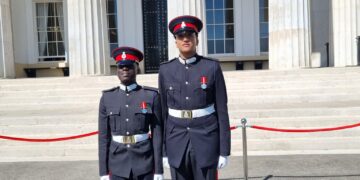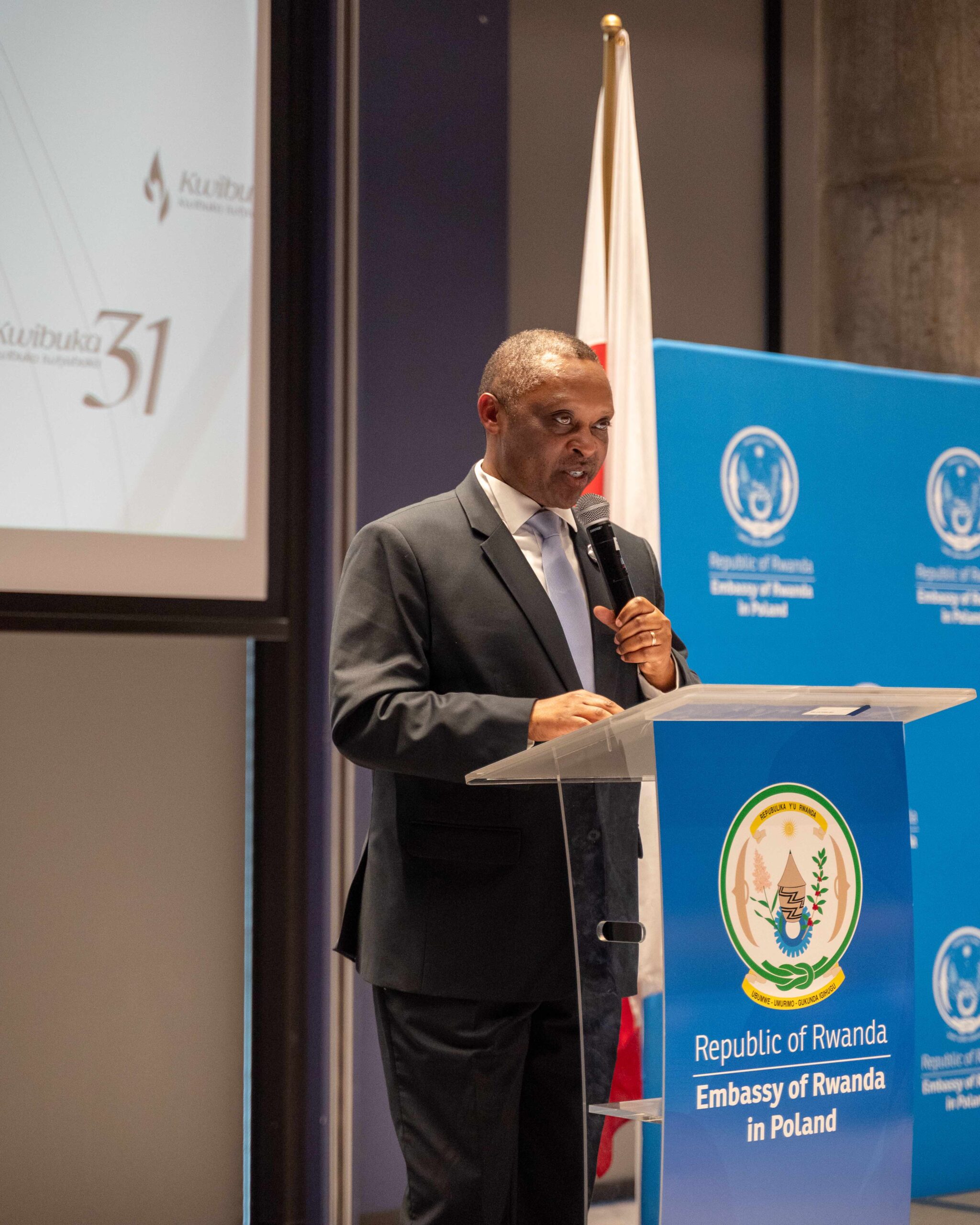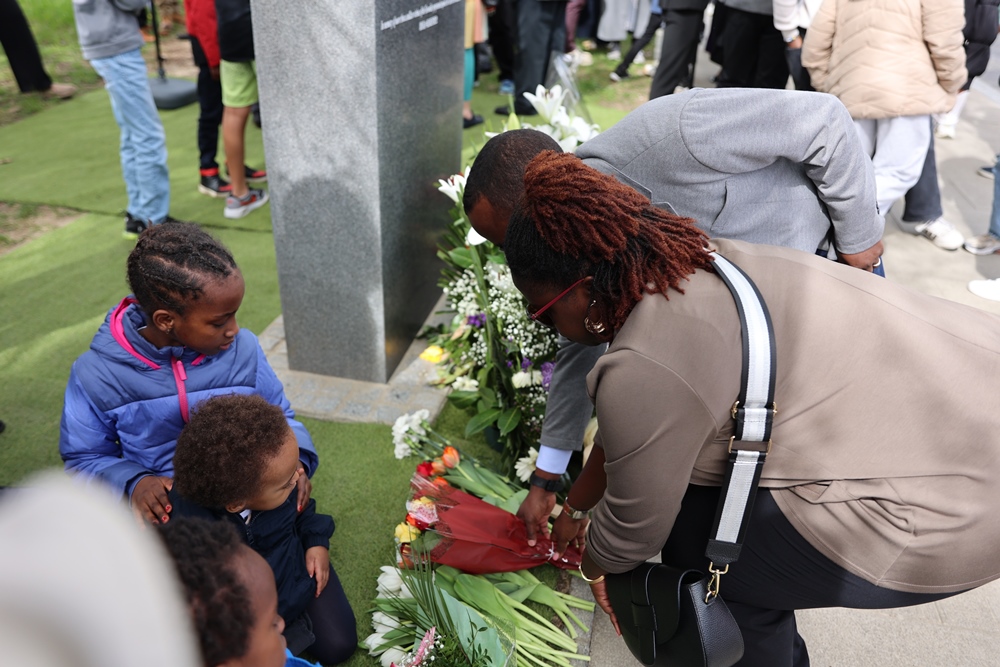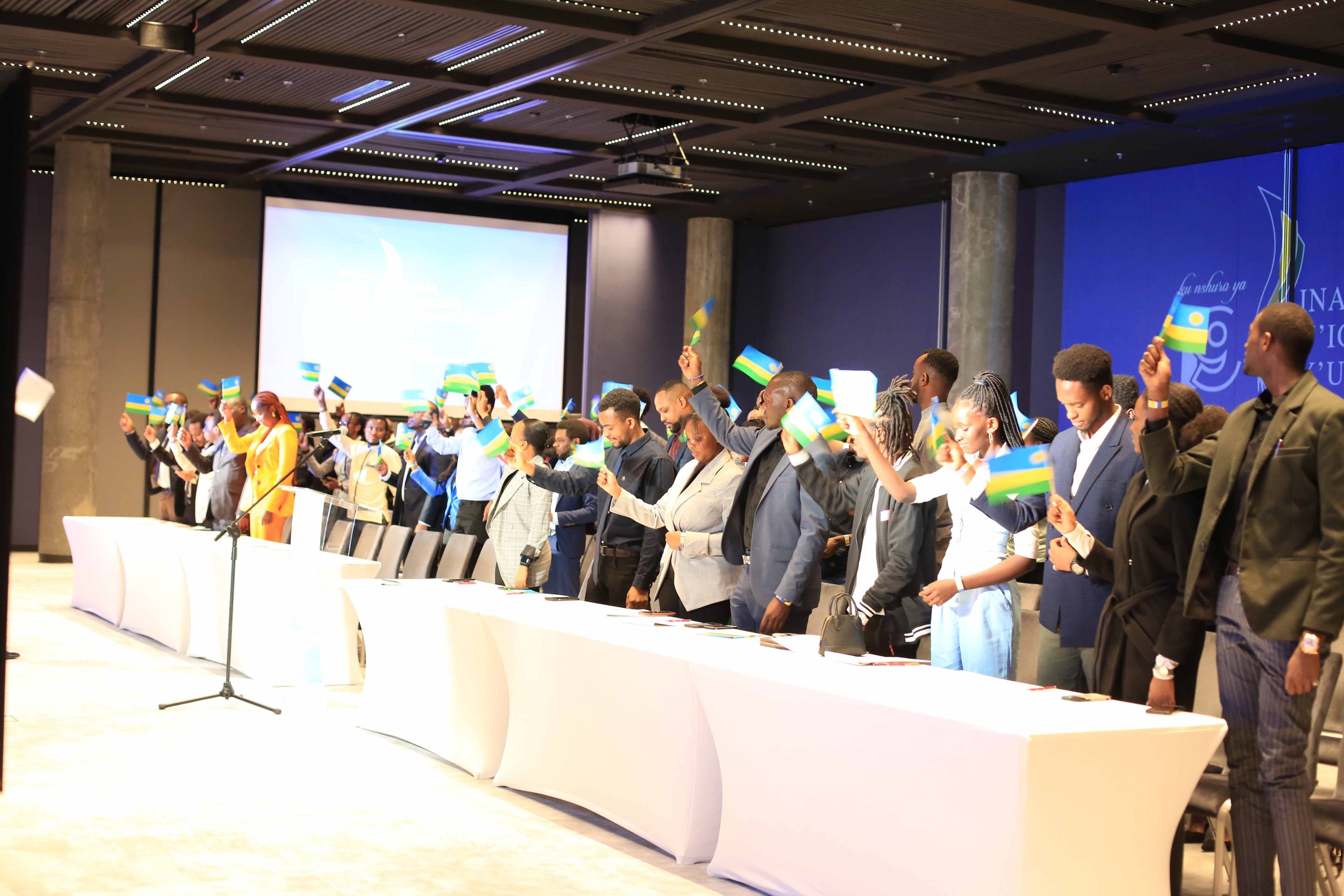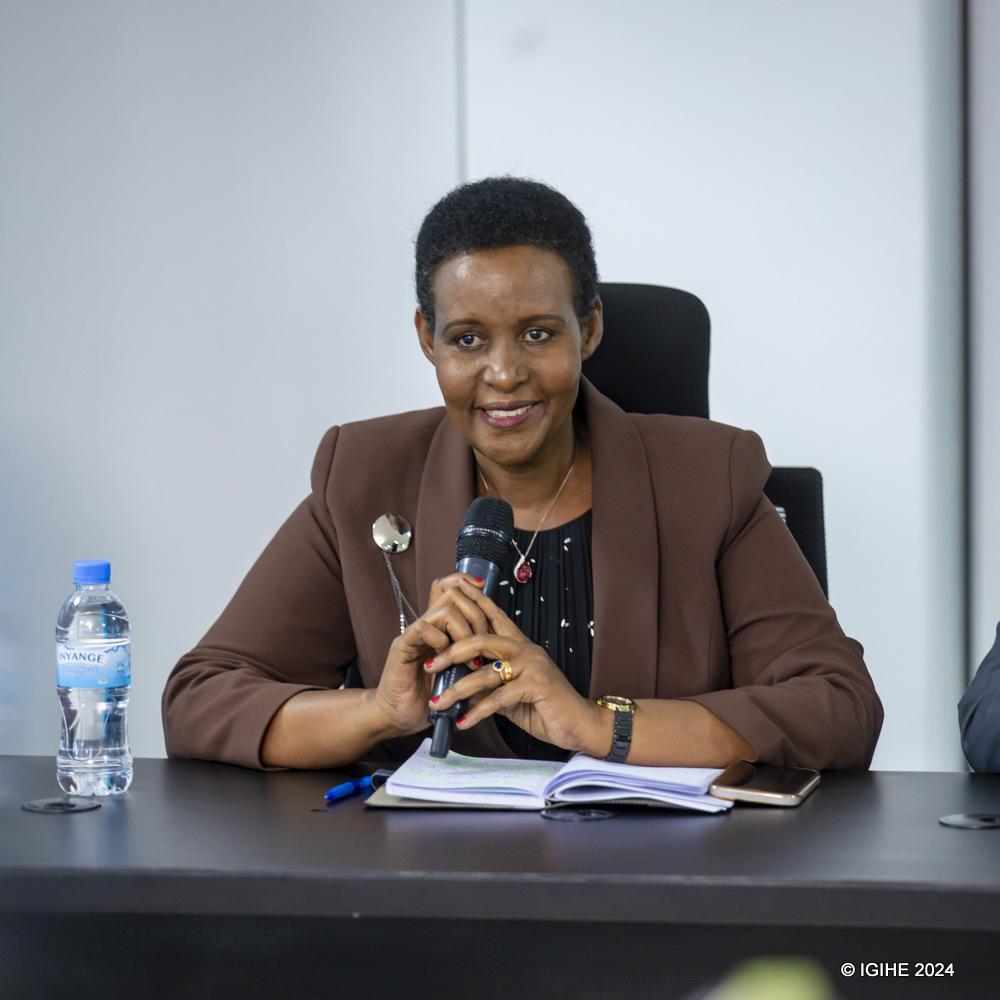
The Embassy of Rwanda in Ethiopia, in collaboration with the African Union Commission, commemorated the 30th anniversary of the Genocide against the Tutsi in Rwanda in 1994.
This annual event took place on Sunday, April 7, 2024, and has been held jointly by the Embassy of Rwanda in Ethiopia and the African Union since 2010.
This year, the commemoration began with a Walk to remember at the headquarters of the African Union, attended by over 300 participants including representatives of their countries and international organizations in Ethiopia, religious leaders, Rwandans living in Ethiopia, staff of the African Union Commission, students, and some Ethiopians.

Participants took time to honor the victims of the Genocide against the Tutsi, lighting the lamp of remembrance and observing a minute of silence.
Commissioner of the Political Affairs, Peace and Security (PAPS), Bankole Adeoye, spoke on the gravity of the events in Rwanda, urging unity in preventing a recurrence of such darkness in Africa.

He also shared updates on the Human Rights Memorial in digital format being prepared by the African Union Commission, which will include the Genocide against the Tutsi in Rwanda in 1994, the Red Terror in Ethiopia, Apartheid in South Africa, and the history of slavery and colonialism in Africa.
Ambassador Jainab Jagne of Gambia, chair of the African Union Peace and Security Council (PSC) for April, offered condolences to Rwandans, touching on the issue of hate speech and ideologies worldwide.

The United Nations Representative to the African Union, SRSG Parfait Onanga, called for resistance against those who spread hate and division, reminding that Rwanda’s experience and recovery should serve as a lesson.
Deputy Chairperson of the African Union Commission, Dr. Monique Nsanzabaganwa, representing Chairperson Moussa Faki Mahamat, focused on the Genocide against the Tutsi, offering support to survivors.
She reminded that the annual event should serve as a lesson to Africa and the world, to fight against division, genocide ideology, and denial.
For this reason, the organization has appointed a Special Envoy to combat and prevent the crime of genocide and other serious crimes.

Dr. Nsanzabaganwa commended the Rwandan government and its people for their resilience and spirit in rebuilding, urging them to remember and rebuild.
The State Secretary for Foreign Affairs in the Ethiopian Ministry of Foreign Affairs, Amb. Mesganu Arga Moach, extended condolences to Rwandans on behalf of the Ethiopian government and its people.

He highlighted Ethiopia’s support to Rwanda after the genocide, including sending troops to restore peace and security. He concluded his speech with a promise of continued collaboration for the betterment of their countries and relations.
Ambassador Charles Karamba, representing Rwanda in Ethiopia and to the African Union, encouraged attendees to fight against genocide denial, perpetuated by perpetrators and their allies.
He called for justice against those responsible for the genocide, whether through legal proceedings or tracking them down to face punishment.

He expressed gratitude towards the Ethiopian government, particularly Prime Minister Dr. Abiy Ahmed, who was among the peacekeeping soldiers in Rwanda in 1994.
The event concluded with an evening of remembrance at the Embassy’s premises, where many Rwandans gathered. Discussions focused on the Genocide against the Tutsi, the role of the RPF Inkotanyi and its armed wing, the RPA, in stopping the genocide and liberating the country, and combating genocide ideology, denial, and revisionism.




